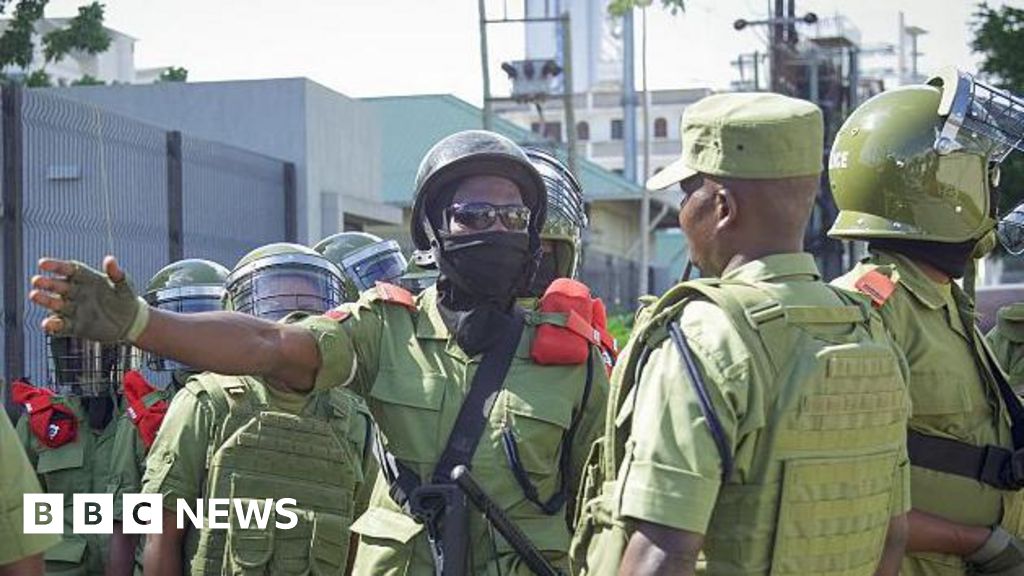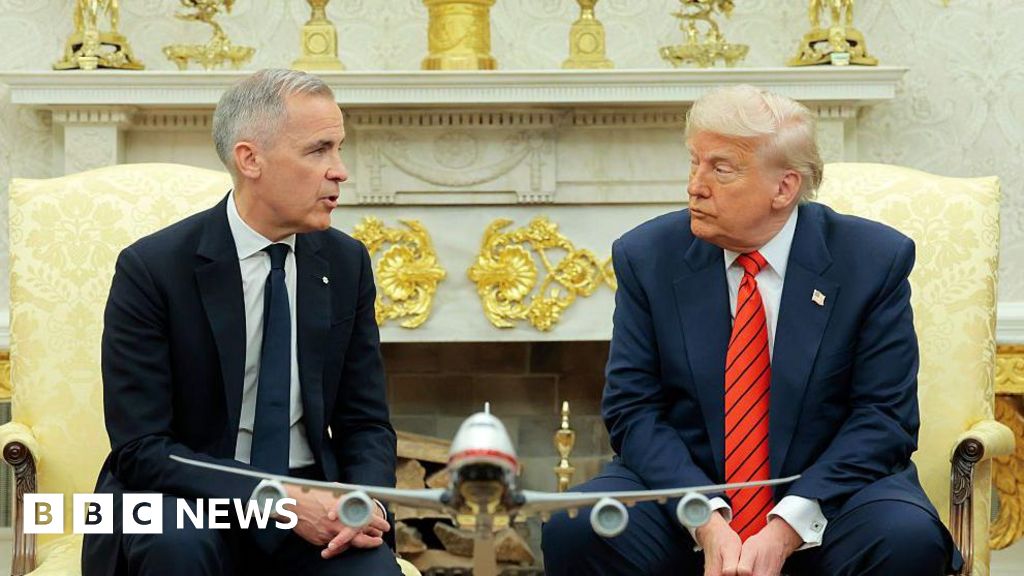ARTICLE AD BOX
By Robin Levinson-King
BBC News, Toronto
Image source, Getty Images
Image caption,Will Smith has said he was "out of line" for slapping Chris Rock
When Will Smith stormed on the stage during Sunday's Oscars ceremony and struck comedian Chris Rock across the face, many were shocked.
The joke that ended with a slap was a Rock quip many also found to be in poor taste - touching on a medical issue concerning Jada Pinkett Smith, Will's wife. The actor has since apologised to Rock, saying: "I was out of line and I was wrong."
The BBC spoke with several comedians about what it's like when a joke lands really, really badly, and what they make of the Smith-Rock showdown.
'You have the right to be offended'
Image source, Aditi Hariani, The Habitat
Abish Mathew of India was forced to hide after taking part in a comedy roast that sparked outrage for including controversial jokes about, among other things, religion.
"All of us had to flee our respective homes in Bombay [Mumbai] and, like, hide out for a week or so because we were really scared," he said.
Police complaints against him and his fellow comics were filed but no charges were laid - while India's constitution ostensibly protects free speech, it makes caveats for speech that outrages religious feelings.
He said he began to wonder if his country was ready for stand-up comedy. But after talking to fellow comedians around the world, he said he realised that the issue of what you can and can't say is a "global phenomenon".
"'I didn't like your joke so I want to take it out on the person'," he summarised.
Sometimes, challenge is positive, he said. Once, a group of female students at the University of Delhi protested during a performance, saying his jokes were sexist.
"They didn't choose violence. They chose protest," he said. "They have the right to speak, they have the right to take offence," and he tried to understand their point of view.
He said that while he appreciates that Smith had an emotional reaction, violence crossed a line.
"It's like a dam that could kind of inspire other people to also react the same way or think that is normalised," he said.
'I was attacked on stage'
Image source, Submitted photo
When Sammy Obeid watched Smith slap Rock at the Oscars, it transported him back to the time he was assaulted on stage five years ago in the US.
He had been performing at a corporate event when a drunk heckler jumped on stage and tried to punch him. He dodged the punch, but the man grabbed him and picked him up before returning to the audience.
That day was a lesson for Mr Obeid: "If people find somebody not funny, it gets them very angry."
Smith said he "reacted emotionally" to the joke Rock made about his wife's shaved head, since she suffers from alopecia, a condition that causes hair loss.
But Mr Obeid said that it doesn't always matter what you say that gets somebody mad, sometimes people just react to something they dislike.
"Very seldom do jokes get a neutral response. It's either they make you laugh, you think it's funny, or you're like, that was stupid, or that's hurtful."
In his case, the joke he told that set the man off was downright innocuous - it was about cats. But it sent the man who attacked him - who was already not enjoying Mr Obeid's act - over the edge.
'We'll never get funding again'
Image source, Submitted photo
Daliso Chaponda, a British-Malawian comedian, has pretty much seen it all after performing for over two decades.
He's had someone grab the mic from his hand.
An audience member once waited outside a club to beat him up (he waited in the green room until the hothead gave up and went home).
He's been arrested by the censure board in Malawi - powers-that-be thought a joke he did about his father, who worked for the government, was anti-government.
No matter where you go, there are unspoken rules about what you can and cannot say, Mr Chaponda said. When performing at a club in Zimbabwe when Robert Mugabe was in power, Mr Chaponda said he was not so much afraid for himself, but aware of the repercussions that his act could have on the owners of the venue.
"The venue said: 'Please don't do anything about the government. You are a foreigner, they'll probably let you go. But we'll never get funding again,'" he said.
While he might not get arrested at a gig in North America or Britain, he said comedians can lose their audience or a gig if they are perceived to cross a line.
"I'm going to generalise… in Africa, you can make fun of groups, right? Be it an ethnic group, a sexuality, you can make fun of groups. But when you start making fun of powerful individuals, that's when you get in trouble," he said.
"In Western countries… tear apart Trump, tear apart Boris Johnson, talk about any sort of individual as much as you want. But when you start talking about the religious group or racial group, that's where you're more likely to get in trouble."
Mr Chaponda said he's not worried that the Oscars incident will inspire new copycats.
"The person who's going to get up and punch you two weeks ago is still the drunk idiot who's going to do it this week," he said.
'A delicate balance'
Image source, Submitted photo
The issue of "cancel culture" has been in the spotlight for a number of years now, with some comedians saying a fear of offending - and the repercussions that follow - is killing comedy.
But Merrill Davis thinks comedians have to use their "emotional intelligence".
"There's a lot of comedians that feel that you should be able to say whatever you want because you're a comedian. I don't believe in that," she said.
"I think there's a delicate balance between an intelligent comedian knowing the audience, knowing the room."
While she's experienced plenty of heckling on stage, she said she's never been assaulted.
"If I had any person up from their chair, and came towards me and did anything to me, I would not be able to get on stage for a long time," she said.
Ultimately, nobody should ever assault someone at work, she said.
"It's dangerous if someone goes up to the stage - that changes the game."

 3 years ago
34
3 years ago
34








 English (US) ·
English (US) ·